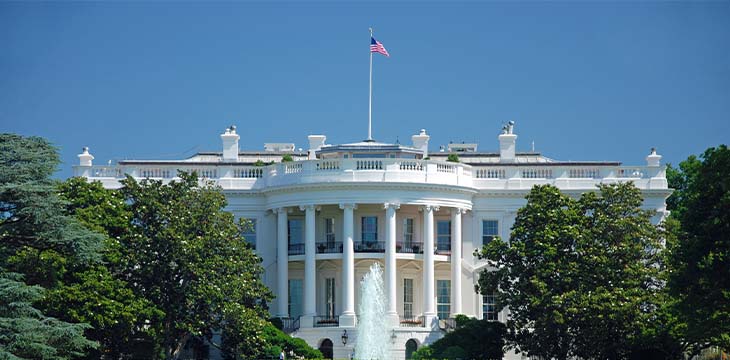|
Getting your Trinity Audio player ready...
|
President Joe Biden has plans to regulate the blockchain and digital currency industry in the next few years. The United States’ 2023 budget has several provisions that address “digital assets” and “cryptocurrency.”
The White House refers to these plans as its strategy to “modernize rules for digital assets,” and they are expecting their efforts to rake in $4.9 billion in revenue by 2023.
The provisions primarily revolve around requiring information reporting, foreign digital asset accounts reporting, and amending the mark-to-market rules to include digital assets.
By the year 2032, the White House expects this strategy to reduce the budget deficit by $10.95 billion.
In addition to generating revenue from modernizing rules for digital assets, the White House says it will dedicate $52 million to “counter cyber threats” by hiring more agents, enhancing response capabilities, and strengthening intelligence collection and analysis capabilities.
“These investments are in line with the Administration’s counter-ransomware strategy that emphasizes disruptive activity and combatting the misuse of cryptocurrency,” says the full report.
Digital currency executive order
The plan to modernize rules for digital assets is in-line with President Joe Biden’s executive order on digital assets and Securities and Exchange Commission (SEC) Chair Gary Gensler’s hawkish rhetoric on the digital asset industry.
Both the executive order and Gary Gensler have called for more regulatory scrutiny in the digital asset space. The executive order stated that consumer and investor protection, mitigating illicit finance and national security risks posed by the illicit use of digital assets, and more are top priorities for the U.S.; while Gary Gensler has repeatedly referred to the digital asset industry as highly speculative and to digital currencies as poker chips.
When the order was published and Gensler made his statements, the threatened legislation seemed to be far into the future. Both the order and Gary Gensler said that legislation was coming; however, they never put a date on it.
The 2023 Fiscal Budget shows us that the legislation that both were talking about is imminent and that the Biden Administration has created detailed plans around the approach it will take to regulating the digital asset space over the next few years.
The digital currency wild west
The days of the digital asset industry being the “wild west” are coming to an end. The United States president, the chair of the U.S. Securities and Exchange Commission, the secretary of the Treasury, and many more government representatives are closing in on digital currencies. Although these individuals ultimately support innovation around the nascent digital asset industry and want to create an environment that encourages that innovation to stay in the United States, they know that they need to develop legal frameworks that thwart the bad actors, illicit projects, and blatant scams in the industry before that goal is realized.
Watch: Head of Unit, Digital Innovation and Blockchain at DG Connect, European Commission Pēteris Zilgalvis on Bitcoin Association’s Blockchain Policy Matters

 02-15-2026
02-15-2026 




